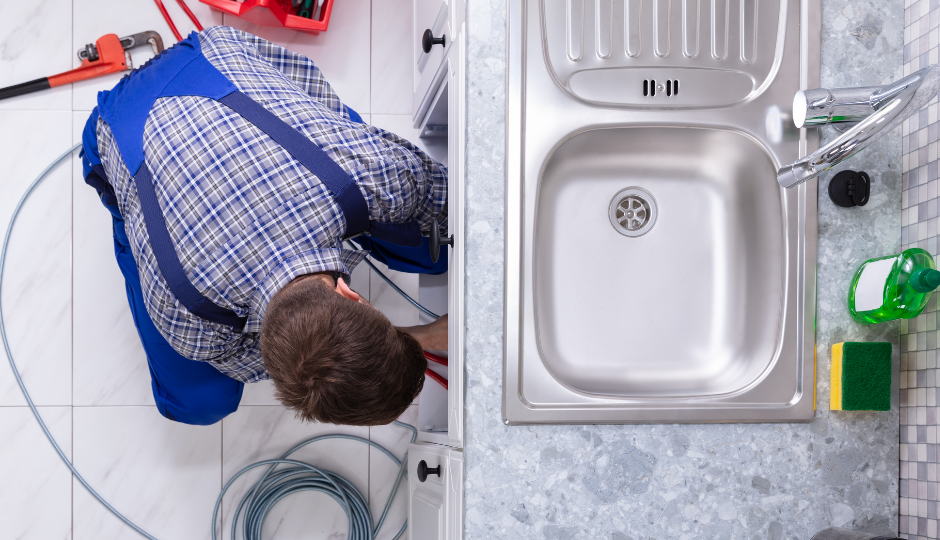
When it comes to sewer usage in Minneapolis, one critical regulation goes under the radar—but it matters: Section 511.290 of the city’s plumbing code, which defines and enforces sewer service utility charges. Understanding this rule is essential for homeowners and businesses, particularly those dealing with heavy grease loads. Here’s a breakdown of what it means and how Marvel Sewer & Drain can help you stay compliant and avoid costly surprises.
What Is Section 511.290 — Sewer Service Utility Charges?
According to Minneapolis Code § 511.290, the city imposes sewer service utility charges to fund the sewer system’s operation, maintenance, and construction, including stormwater management and sewage treatment services. These charges are levied on every property connected to the city’s sewer, determined by how much water a property uses, a proxy for sewage volume. .
- Why it matters: Your water usage directly affects your sewer bill. High water volumes mean higher charges, especially impacting properties that generate significant wastewater, like restaurants or commercial kitchens.
Why Fats, Oils & Grease (FOG) Control Intertwines with Sewer Charges
Minneapolis explicitly requires businesses generating FOG-laden wastewater (e.g., restaurants) to participate in a FOG control program. The city mandates using and maintaining grease traps/interceptors to keep FOG out of sewer lines. The consequences of negligence include clogs, backups, and system failures.
Why it matters for sewer charges:
- Prevent backups and damage: Grease buildup can restrict sewer capacity, leading to blockages that might require costly repairs—and possibly lead to surcharges or enforcement actions.
- Keep FOG out of the count: While sewer charges are based on wastewater volume, uncontrolled grease can exacerbate system strains, impacting functional capacity city-wide.
What This Means for Marvel Sewer & Drain Customers
Lower Sewer Bills Through Efficient Use
Since sewer service charges align with water usage, minimizing unnecessary water—particularly FOG-laden wastewater—can help reduce your bill.
Protect Your Property from Blockages
Proper grease interceptor installation and regular maintenance help prevent backups that can damage interiors and result in emergency plumbing calls.
Stay Compliant and Avoid Fines
Complying with Minneapolis FOG laws (e.g., Section 511.300 and related grease interceptor requirements) avoids penalties and injury to your plumbing system—and supports smoother sewer operations city‑wide.
How Marvel Sewer & Drain Helps You Stay Ahead
As Minneapolis-based drain & sewer experts, Marvel Sewer & Drain understands both the code and your needs:
- Grease interceptor installation & sizing: We ensure your system meets city code and can handle your specific flow rates.
- Routine maintenance & cleaning: Regular pump‑outs and inspections keep your interceptor working at peak. FOG buildup should be kept below about 25% full.
- FOG reduction best practices: From intercepting and recycling cooking oils to training staff on proper cleanup—these steps reduce the burden on your system and the sewer network in Minneapolis.
- Water-use optimization strategies: We can help advise on efficient fixtures or operational tweaks to minimize unnecessary water flow and reduce sewer costs.
Final Takeaway
Minneapolis’s Section 511.290 establishes that sewer bills are tied to water usage, making FOG control a cleanliness issue and a financial one. Whether you’re a commercial kitchen or a homeowner concerned about backups, proactive grease and water use management can protect your property, reduce charges, and keep you compliant.
Marvel Sewer & Drain is your partner in navigating these regulations—offering expert solutions from interceptor installation to regular cleanings and water-use advice. Keep your pipes clear, your bills fair, and your compliance solid!
Frequently Asked Questions About Minneapolis Plumbing Code § 511.290
1. What is Minneapolis Plumbing Code § 511.290?
The section of the city code establishes sewer service utility charges based on your water use to fund the operation and maintenance of the sewer system.
2. Who is affected by § 511.290?
Every property connected to the Minneapolis sewer system—homes, businesses, and restaurants—pays sewer service charges tied to their water usage.
3. How do sewer charges relate to grease management?
While charges are based on water volume, fats, oils, and grease (FOG) can cause backups, leading to higher costs, fines, or extra maintenance.
4. What is a grease interceptor, and why is it required?
A grease interceptor is a device that traps FOG before it enters the sewer, and Minneapolis requires many food businesses to have one installed and maintained.
5. How often should grease interceptors be cleaned?
Depending on use, they should be serviced whenever FOG buildup reaches about 25% of the tank’s volume—often every 1–3 months.
6. Can homeowners be affected by FOG problems, too?
Yes—pouring grease down residential drains can clog household pipes and contribute to costly city sewer issues.
7. What happens if a business doesn’t follow FOG regulations?
Suppose businesses fail. If they fail to install or maintain grease control devices properly, they can face penalties, emergency repairs, or even disrupted operations.
8. How can Marvel Sewer & Drain help?
We provide grease interceptor installation, cleaning, maintenance, and water-use strategies to help customers lower costs and stay compliant.

